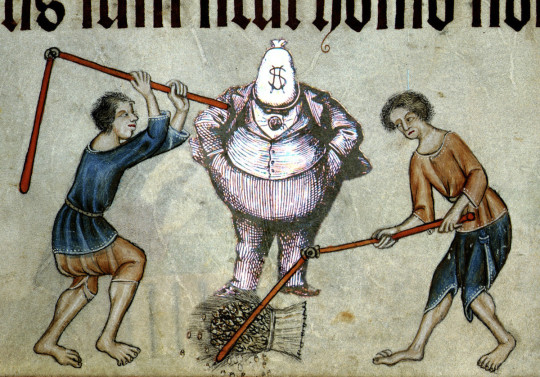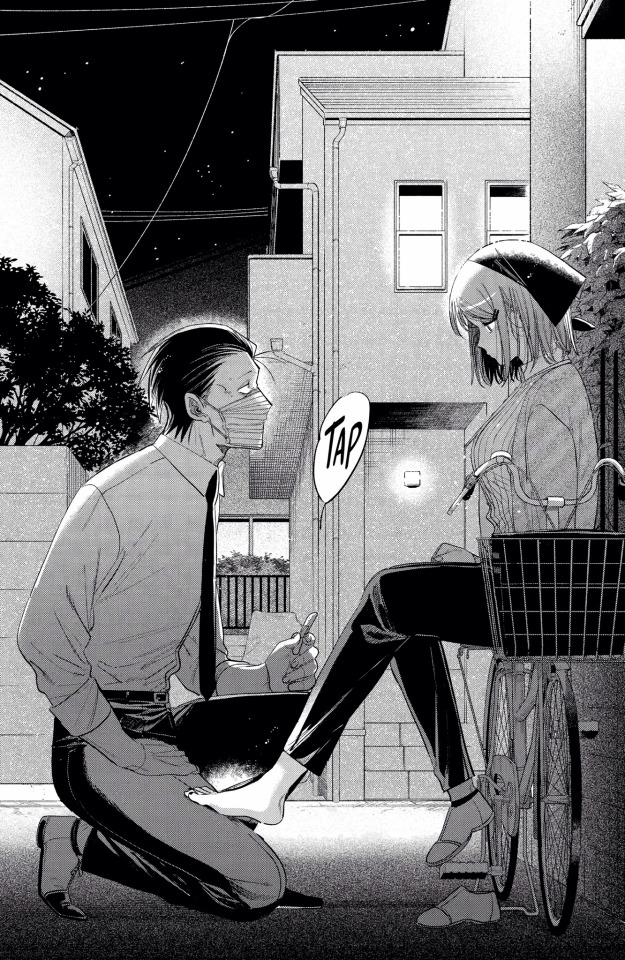#yanie
Explore tagged Tumblr posts
Text

6K notes
·
View notes
Text

Smoking Behind the Supermarket with You | Super no Ura de Yani Suu Futari by Jinushi – Chapter 34
#Smoking Behind the Supermarket with You#Super no Ura de Yani Suu Futari#Jinushi#sbtswyedit#Seinen#iyashikeiedi#manga#mymanga#manga caps#mangacap#mangaedit#manga edit#itsmangacap#anisource#dailymanga#fymanga#monochrome#black and white#B&W#animangabwedit
747 notes
·
View notes
Text
June 4, 2025 - Yanis Varoufakis on the state of Democracy in Europe, as European states ban pro-Palestine demonstrations, shut down news agencies for supporting Palestine, shut down Palestine solidarity organisations, and jail their own citizens for critisizing Israel.
#interview#eu#europe#democracy#freedom of the press#freedom of speech#free palestine#palestine#fuck israel#israel#yanis varoufakis#video#2025#european union
384 notes
·
View notes
Text






#posting this while listening to not like us#i feel blessed#lol#ts4#ts4 simblr#sims 4 screenshots#ts4 gameplay#sims 4#sim: ran#sim: yanis#bye mt komorebi for now#and yeah this is 🔞!!!!#apricot save
1K notes
·
View notes
Text
Podcasting “Capitalists Hate Capitalism”

I'm touring my new, nationally bestselling novel The Bezzle! Catch me in Torino (Apr 21) Marin County (Apr 27), Winnipeg (May 2), Calgary (May 3), Vancouver (May 4), and beyond!

This week on my podcast, I read "Capitalists Hate Capitalism," my latest column for Locus Magazine:
https://locusmag.com/2024/03/cory-doctorow-capitalists-hate-capitalism/
What do I mean by "capitalists hate capitalism?" It all comes down to the difference between "profits" and "rents." A capitalist takes capital (money, or the things you can buy with it) and combines it with employees' labor, and generates profits (the capitalist's share) and wages (the workers' share).
Rents, meanwhile, come from owning an asset that capitalists need to generate profits. For example, a landlord who rents a storefront to a coffee shop extracts rent from the capitalist who owns the coffee shop. Meanwhile, the capitalist who owns the cafe extracts profits from the baristas' labor.
Capitalists' founding philosophers like Adam Smith hated rents. Worse: rents were the most important source of income at the time of capitalism's founding. Feudal lords owned great swathes of land, and there were armies of serfs who were bound to that land – it was illegal for them to leave it. The serfs owed rent to lords, and so they worked the land in order grow crops and raise livestock that they handed over the to lord as rent for the land they weren't allowed to leave.
Capitalists, meanwhile, wanted to turn that land into grazing territory for sheep as a source of wool for the "dark, Satanic mills" of the industrial revolution. They wanted the serfs to be kicked off their land so that they would become "free labor" that could be hired to work in those factories.
For the founders of capitalism, a "free market" wasn't free from regulation, it was free from rents, and "free labor" came from workers who were free to leave the estates where they were born – but also free to starve unless they took a job with the capitalists.
For capitalism's philosophers, free markets and free labor weren't just a source of profits, they were also a source of virtue. Capitalists – unlike lords – had to worry about competition from one another. They had to make better goods at lower prices, lest their customers take their business elsewhere; and they had to offer higher pay and better conditions, lest their "free labor" take a job elsewhere.
This means that capitalists are haunted by the fear of losing everything, and that fear acts as a goad, driving them to find ways to make everything better for everyone: better, cheaper products that benefit shoppers; and better-paid, safer jobs that benefit workers. For Smith, capitalism is alchemy, a philosopher's stone that transforms the base metal of greed into the gold of public spiritedness.
By contrast, rentiers are insulated from competition. Their workers are bound to the land, and must toil to pay the rent no matter whether they are treated well or abused. The rent rolls in reliably, without the lord having to invest in new, better ways to bring in the harvest. It's a good life (for the lord).
Think of that coffee-shop again: if a better cafe opens across the street, the owner can lose it all, as their customers and workers switch allegiance. But for the landlord, the failure of his capitalist tenant is a feature, not a bug. Once the cafe goes bust, the landlord gets a newly vacant storefront on the same block as the hot new coffee shop that can be rented out at even higher rates to another capitalist who tries his luck.
The industrial revolution wasn't just the triumph of automation over craft processes, nor the triumph of factory owners over weavers. It was also the triumph of profits over rents. The transformation of hereditary estates worked by serfs into part of the supply chain for textile mills was attended by – and contributed to – the political ascendancy of capitalists over rentiers.
Now, obviously, capitalism didn't end rents – just as feudalism didn't require the total absence of profits. Under feudalism, capitalists still extracted profits from capital and labor; and under capitalism, rentiers still extracted rents from assets that capitalists and workers paid them to use.
The difference comes in the way that conflicts between profits and rents were resolved. Feudalism is a system where rents triumph over profits, and capitalism is a system where profits triumph over rents.
It's conflict that tells you what really matters. You love your family, but they drive you crazy. If you side with your family over your friends – even when your friends might be right and your family's probably wrong – then you value your family more than your friends. That doesn't mean you don't value your friends – it means that you value them less than your family.
Conflict is a reliable way to know whether or not you're a leftist. As Steven Brust says, the way to distinguish a leftist is to ask "What's more important, human rights, or property rights?" If you answer "Property rights are human right," you're not a leftist. Leftists don't necessarily oppose all property rights – they just think they're less important than human rights.
Think of conflicts between property rights and human rights: the grocer who deliberately renders leftover food inedible before putting it in the dumpster to ensure that hungry people can't eat it, or the landlord who keeps an apartment empty while a homeless person freezes to death on its doorstep. You don't have to say "No one can own food or a home" to say, "in these cases, property rights are interfering with human rights, so they should be overridden." For leftists property rights can be a means to human rights (like revolutionary land reformers who give peasants title to the lands they work), but where property rights interfere with human rights, they are set aside.
In his 2023 book Technofeudalism, Yanis Varoufakis claims that capitalism has given way to a new feudalism – that capitalism was a transitional phase between feudalism…and feudalism:
https://pluralistic.net/2023/09/28/cloudalists/#cloud-capital
Varoufakis's point isn't that capitalists have gone extinct. Rather, it's that today, conflicts between capital and assets – between rents and profits – reliably end with a victory of rent over profit.
Think of Amazon: the "everything store" appears to be a vast bazaar, a flea-market whose stalls are all operated by independent capitalists who decide what to sell, how to price it, and then compete to tempt shoppers. In reality, though, the whole system is owned by a single feudalist, who extracts 51% from every dollar those merchants take in, and decides who can sell, and what they can sell, and at what price, and whether anyone can even see it:
https://pluralistic.net/2024/03/01/managerial-discretion/#junk-fees
Or consider the patent trolls of the Eastern District of Texas. These "companies" are invisible and produce nothing. They consist solely of a serviced mailbox in a dusty, uninhabited office-building, and an overbroad patent (say, a patent on "tapping on a screen with your finger") issued by the US Patent and Trademark Office. These companies extract hundreds of millions of dollars from Apple, Google, Samsung for violating these patents. In other words, the government steps in and takes vast profits generated through productive activity by companies that make phones, and turns that money over as rent paid to unproductive companies whose sole "product" is lawsuits. It's the triumph of rent over profit.
Capitalists hate capitalism. All capitalists would rather extract rents than profits, because rents are insulated from competition. The merchants who sell on Jeff Bezos's Amazon (or open a cafe in a landlord's storefront, or license a foolish smartphone patent) bear all the risk. The landlords – of Amazon, the storefront, or the patent – get paid whether or not that risk pays off.
This is why Google, Apple and Samsung also have vast digital estates that they rent out to capitalists – everything from app stores to patent portfolios. They would much rather be in the business of renting things out to capitalists than competing with capitalists.
Hence that famous Adam Smith quote: "People of the same trade seldom meet together, even for merriment and diversion, but the conversation ends in a conspiracy against the public, or in some contrivance to raise prices." This is literally what Google and Meta do:
https://en.wikipedia.org/wiki/Jedi_Blue
And it's what Apple and Google do:
https://www.theverge.com/2023/10/27/23934961/google-antitrust-trial-defaults-search-deal-26-3-billion
Why compete with one another when you can collude, like feudal lords with adjacent estates who trust one another to return any serf they catch trying to sneak away in the dead of night?
Because of course, it's not just "free markets" that have been captured by rents ("Competition is for losers" -P. Thiel) – it's also "free labor." For years, the largest tech and entertainment companies in America illegally colluded on a "no poach" agreement not to hire one-anothers' employees:
https://techcrunch.com/2015/09/03/apple-google-other-silicon-valley-tech-giants-ordered-to-pay-415m-in-no-poaching-suit/
These companies were bitter competitors – as were these sectors. Even as Big Content was lobbying for farcical copyright law expansions and vowing to capture Big Tech, all these companies on both sides were able to set aside their differences and collude to bind their free workers to their estates and end the "wasteful competition" to secure their labor.
Of course, this is even more pronounced at the bottom of the labor market, where noncompete "agreements" are the norm. The median American worker bound by a noncompete is a fast-food worker whose employer can wield the power of the state to prevent that worker from leaving behind the Wendy's cash-register to make $0.25/hour more at the McDonald's fry trap across the street:
https://pluralistic.net/2022/02/02/its-the-economy-stupid/#neofeudal
Employers defend this as necessary to secure their investment in training their workers and to ensure the integrity of their trade secrets. But why should their investments be protected? Capitalism is about risk, and the fear that accompanies risk – fear that drives capitalists to innovate, which creates the public benefit that is the moral justification for capitalism.
Capitalists hate capitalism. They don't want free labor – they want labor bound to the land. Capitalists benefit from free labor: if you have a better company, you can tempt away the best workers and cause your inferior rival to fail. But feudalists benefit from un-free labor, from tricks like "bondage fees" that force workers to pay in order to quit their jobs:
https://pluralistic.net/2023/04/21/bondage-fees/#doorman-building
Companies like Petsmart use "training repayment agreement provisions" (TRAPs) to keep low-waged workers from leaving for better employers. Petsmart says it costs $5,500 to train a pet-groomer, and if that worker is fired, laid off, or quits less than two years, they have to pay that amount to Petsmart:
https://pluralistic.net/2022/08/04/its-a-trap/#a-little-on-the-nose
Now, Petsmart is full of shit here. The "four-week training course" Petsmart claims is worth $5,500 actually only lasts for three weeks. What's more, the "training" consists of sweeping the floor and doing other low-level chores for three weeks, without pay.
But even if Petsmart were to give $5,500 worth of training to every pet-groomer, this would still be bullshit. Why should the worker bear the risk of Petsmart making a bad investment in their training? Under capitalism, risks justify rewards. Petsmart's argument for charging $50 to groom your dog and paying the groomer $15 for the job is that they took $35 worth of risk. But some of that risk is being borne by the worker – they're the ones footing the bill for the training.
For Petsmart – as for all feudalists – a worker (with all the attendant risks) can be turned into an asset, something that isn't subject to competition. Petsmart doesn't have to retain workers through superior pay and conditions – they can use the state's contract-enforcement mechanism instead.
Capitalists hate capitalism, but they love feudalism. Sure, they dress this up by claiming that governmental de-risking spurs investment: "Who would pay to train a pet-groomer if that worker could walk out the next day and shave dogs for some competing shop?"
But this is obvious nonsense. Think of Silicon Valley: high tech is the most "IP-intensive" of all industries, the sector that has had to compete most fiercely for skilled labor. And yet, Silicon Valley is in California, where noncompetes are illegal. Every single successful Silicon Valley company has thrived in an environment in which their skilled workers can walk out the door at any time and take a job with a rival company.
There's no indication that the risk of free labor prevents investment. Think of AI, the biggest investment bubble in human history. All the major AI companies are in jurisdictions where noncompetes are illegal. Anthropic – OpenAI's most serious competitor – was founded by a sister/brother team who quit senior roles at OpenAI and founded a direct competitor. No one can claim with a straight face that OpenAI is now unable to raise capital on favorable terms.
What's more, when OpenAI founder Sam Altman was forced out by his board, Microsoft offered to hire him – and 700 other OpenAI personnel – to found an OpenAI competitor. When Altman returned to the company, Microsoft invested more money in OpenAI, despite their intimate understanding that anyone could hire away the company's founder and all of its top technical staff at any time.
The idea that the departure of the Burger King trade secrets locked up in its workers' heads constitute more of a risk to the ability to operate a hamburger restaurant than the departure of the entire technical staff of OpenAI is obvious nonsense. Noncompetes aren't a way to make it possible to run a business – they're a way to make it easy to run a business, by eliminating competition and pushing the risk onto employees.
Because capitalists hate capitalism. And who can blame them? Who wouldn't prefer a life with less risk to one where you have to constantly look over your shoulder for competitors who've found a way to make a superior offer to your customers and workers?
This is why businesses are so excited about securing "IP" – that is, a government-backed right to control your workers, customers, competitors or critics:
https://locusmag.com/2020/09/cory-doctorow-ip/
The argument for every IP right expansion is the same: "Who would invest in creating something new without the assurance that someone else wouldn’t copy and improve on it and put them out of business?"
That was the argument raised five years ago, during the (mercifully brief) mania for genre writers seeking trademarks on common tropes. There was the romance writer who got a trademark on the word "cocky" in book titles:
https://www.theverge.com/2018/7/16/17566276/cockygate-amazon-kindle-unlimited-algorithm-self-published-romance-novel-cabal
And the fantasy writer who wanted a trademark on "dragon slayer" in fantasy novel titles:
https://memex.craphound.com/2018/06/14/son-of-cocky-a-writer-is-trying-to-trademark-dragon-slayer-for-fantasy-novels/
Who subsequently sought a trademark on any book cover featuring a person holding a weapon:
https://memex.craphound.com/2018/07/19/trademark-troll-who-claims-to-own-dragon-slayer-now-wants-exclusive-rights-to-book-covers-where-someone-is-holding-a-weapon/
For these would-be rentiers, the logic was the same: "Why would I write a book about a dragon-slayer if I could lose readers to someone else who writes a book about dragon-slayers?"
In these cases, the USPTO denied or rescinded its trademarks. Profits triumphed over rents. But increasingly, rents are triumphing over profits, and rent-extraction is celebrated as "smart business," while profits are for suckers, only slightly preferable to "wages" (the worst way to get paid under both capitalism and feudalism).
That's what's behind all the talk about "passive income" – that's just a euphemism for "rent." It's what Douglas Rushkoff is referring to in Survival of the Richest when he talks about the wealthy wanting to "go meta":
https://pluralistic.net/2022/09/13/collapse-porn/#collapse-porn
Don't drive a cab – go meta and buy a medallion. Don't buy a medallion, go meta and found Uber. Don't found Uber, go meta and invest in Uber. Don't invest in Uber, go meta and buy options on Uber stock. Don't buy Uber stock options, go meta and buy derivatives of options on Uber stock.
"Going meta" means distancing yourself from capitalism – from income derived from profits, from competition, from risk – and cozying up to feudalism.
Capitalists have always hated capitalism. The owners of the dark Satanic mills wanted peasants turned off the land and converted into "free labor" – but they also kidnapped Napoleonic war-orphans and indentured them to ten-year terms of service, which was all you could get out of a child's body before it was ruined for further work:
https://pluralistic.net/2023/09/26/enochs-hammer/#thats-fronkonsteen
When Varoufakis says we've entered a new feudal age, he doesn't mean that we've abolished capitalism. He means that – for the first time in centuries – when rents go to war against profits – the rents almost always emerge victorious.
Here's the podcast episode:
https://craphound.com/news/2024/04/14/capitalists-hate-capitalism/
Here's a direct link to the MP3 (hosting courtesy of the Internet Archive; they'll host your stuff for free, forever):
https://archive.org/download/Cory_Doctorow_Podcast_465/Cory_Doctorow_Podcast_465_-_Capitalists_Hate_Capitalism.mp3
And here's the RSS feed for my podcast:
http://feeds.feedburner.com/doctorow_podcast

If you'd like an essay-formatted version of this post to read or share, here's a link to it on pluralistic.net, my surveillance-free, ad-free, tracker-free blog:
https://pluralistic.net/2024/04/18/in-extremis-veritas/#the-winnah
1K notes
·
View notes
Text

#Suupaa no Ura de Yani Suu Hanashi#A Story About Smoking At The Back Of The Supermarket#Jinushi#manga cap#mangacap#manga
403 notes
·
View notes
Text

スーパーの裏でヤニ吸うふたり Smoking Behind The Supermarket With You by Jinushi 2022
#manga cap#manga#mangacap#manga caps#monochrome#mangacaps#shoujo#shojo#shoujo manga#shojo manga#romance manga#animanga#manga post#manga page#manga panel#manga couple#manga blog#manga daily#dailymanga#daily manga#monochrome manga#manga girl#manga edit#jinushi#super no ura de yani suu futari#josei#josei cap#josei romance#josei manga#manga romance
293 notes
·
View notes
Text
insanlar ten uyumunun önemini anlatıyor ama muhabbet uyumunun, kafa dengi biriyle olmanın nasıl muazzam bi his olduğunu bilmiyorlar
562 notes
·
View notes
Text

2K notes
·
View notes
Text










Here's all the secrets I found in the demo version of Lacey's Love Meter.
#lacey's flash games#lacey flash games#lacey's games#lacey games#lacey's flash games demo#lacey's love meter#lacey's flash games spoilers#lacey games spoilers#rocío yani#rocio yani#grace asop#laisie#jaycey#maijay#jammercule#my stuff
244 notes
·
View notes
Text

Smoking Behind the Supermarket with You | Super no Ura de Yani Suu Futari by Jinushi – Chapter 39
#Smoking Behind the Supermarket with You#Super no Ura de Yani Suu Futari#Jinushi#sbtswyedit#Seinen#iyashikeiedi#manga#mymanga#manga caps#mangacap#mangaedit#manga edit#itsmangacap#anisource#dailymanga#fymanga#monochrome#black and white#B&W#animangabwedit
563 notes
·
View notes
Text

Ensirhaddon'Ammu Yani'am Erabenimsun
Or that Velothi scum (Ilaro Sero and Orvas Dren's opinions) that stole from the Sero Ebony mines and single handily destroyed a whole marriage pact by being saaaaaaaaaaaaaaaad.
That and the whole thing with his son being the Nerevarine. He's a bit dead for that. (Dead in cave at 37).
#my art#danger!josh#Yani Ensirhaddon#dunmer#morrowind#the elder scrolls#ashlander#vvardenfell#Erabenimsun#tes morrowind#tes art#dark elf#tesblr
151 notes
·
View notes
Text


read a manga and went a little bonkers
#and by bonkers I mean kind of lost my shit a little bitmfghg#ugly wheezing sounds hELP#manga is Super no Ura de Yani Suu Futari#crawls out of the abyss to post a suggestive drawing once every 5 years aKFHJFJH#sketchbook stuff#still trying to get the hang of tones/trying to pay attention a little more when reading manga#I swear I'll get to the asks later today >:'D#my break time went from reading manga to furiously drawing lmao#-squints- jhmmmg actually I think if I showed the girl's right shoulder more/arm stretched out#would work better#also the guy's left arm is a wee wonky but eh#anywaYS
452 notes
·
View notes
Text
Announcing the Picks and Shovels book tour

This week only, Barnes and Noble is offering 25% off pre-orders of my forthcoming novel Picks and Shovels.

My next novel, Picks and Shovels, is officially out in the US and Canada on Feb 17, and I'm about to leave on a 20+ city book-tour, which means there's a nonzero chance I'll be in a city near you between now and the end of the spring!
https://us.macmillan.com/books/9781250865908/picksandshovels
Picks and Shovels is a standalone novel starring Martin Hench – my hard-charging, two-fisted, high-tech forensic accountant – in his very first adventure, in the early 1980s. It's a story about the Weird PC era, when no one was really certain what shape PCs should be, who should make them, who should buy them, and what they're for. It features a commercial war between two very different PC companies.
The first one, Fidelity Computing, is a predatory multi-level marketing faith scam, run by a Mormon bishop, a Catholic priest, and an orthodox rabbi. Fidelity recruits people to exploit members of their faith communities by selling them third-rate PCs that are designed as rip-off lock-ins, forcing you to buy special floppies for their drives, special paper for their printers, and to use software that is incompatible with everything else in the world.
The second PC company is Computing Freedom, a rebel alliance of three former Fidelity Computing sales-managers: an orthodox woman who's been rejected by her family after coming out as queer; a Mormon woman who's rejected the Church over its opposition to the Equal Rights Amendment, and a nun who's quit her order to join the Liberation Theology movement in the struggle for human rights in America's dirty wars.
In the middle of it all is Martin Hench, coming of age in San Francisco during the PC bubble, going to Dead Kennedys shows, getting radicalized by ACT UP!, and falling in love – all while serving as CFO and consigliere to Computing Freedom, as a trade war turns into a shooting war, and they have to flee for their lives.
The book's had fantastic early reviews, with endorsements from computer historians like Steven Levy (Hackers), Claire Evans (Broad-Band), John Markoff (What the Doormouse Said) and Dan'l Lewin (CEO of the Computer History Museum). Stephen Fry raved that he "hugely enjoyed" the "note perfect," "superb" story.
And I'm about to leave on tour! I have nineteen confirmed dates, and two nearly confirmed dates, and there's more to come! I hope you'll consider joining me at one of these events. I've got a bunch of fantastic conversation partners joining me onstage and online, and the bookstores that are hosting me are some of my favorite indie booksellers in the world.
BOSTON (Feb 14): Boskone, 4PM, Westin Boston Seaport District
BOSTON (Feb 14): Brookline Booksmith with KEN LIU, 7PM, 279 Harvard Street, Brookline
VIRTUAL (Feb 15): YANIS VAROUFAKIS, sponsored by Jacobin and hosted by David Moscrop, 10AM Pacific, 1PM Eastern, 6PM UK, 7PM CET
MENLO PARK (Feb 17): Kepler’s Books with CHARLIE JANE ANDERS, 7PM, 1010 El Camino Real
LOS ANGELES (Feb 18): Diesel Bookstore with WIL WHEATON, 630PM, 225 26th Street, Santa Monica
SEATTLE (Feb 19): Third Place Books with DAN SAVAGE, 7PM, 17171 Bothell Way NW Lake Forest Park
TORONTO (Feb 23): Another Story, 630PM, 315 Roncesvalles Ave
NYC (Feb 26): The Strand with JOHN HODGMAN, 7PM, 828 Broadway
PENN STATE (Feb 27): Kern Auditorium, 7PM, 112 Kern Building
DOYLESTOWN (Mar 1): Doylestown Bookshop, 12PM, 16 S Main St
BALTIMORE (Mar 2): Red Emma’s, 2PM, 630PM, 3128 Greenmount Ave
DC (Mar 4): Cleveland Park Library with MATT STOLLER, 630PM, 3310 Connecticut Ave NW
RICHMOND (Mar 5): Fountain Bookstore with LEE VINSEL, 6PM, 1312 E Cary St
AUSTIN (Mar 10): First Light Books, 7PM, 4300 Speedway/43rd
BURBANK (Mar 13): Dark Delicacies, 6PM, 822 N. Hollywood Way
SAN DIEGO (Mar 24): Mysterious Galaxy, 7PM, 3555 Rosecrans
BELFAST (Mar 24) (remote): Imagine! Festival with ALAN MEBAN, 7PM UK
CHICAGO, Apr 2: Exile in Bookville with PETER SAGAL, 7PM, 410 S Michigan Ave, 2nd floor
BLOOMINGTON, Apr 4: Morgenstern Books, 6PM, 642 N Madison St
PDX, Jun 20 (TBC): Powell’s Books (date and time to be confirmed)
I'm also finalizing plans for one or two dates in NEW ZEALAND at the end of April, as well as a ATLANTA date, likely on March 26.
I really hope you'll come out and say hello. I know these are tough times. Hanging out with nice people who care about the same stuff as you is a genuine tonic.


If you'd like an essay-formatted version of this post to read or share, here's a link to it on pluralistic.net, my surveillance-free, ad-free, tracker-free blog:
https://pluralistic.net/2025/02/06/picks-and-shovels-tour/#19-cities-plus-plus
#pluralistic#boston#jacobin#menlo park#Charlie Jane Anders#yanis varoufakis#Los Angeles#wil wheaton#seattle#dan savage#penn state#doylestown#dc#baltimore#richmond#lee vinsel#sxsw#burbank#austin#san diego#belfast#imagine festival#chicago#peter sagal#Bloomington#pdx#powells#book tours#picks and shovels#books
182 notes
·
View notes